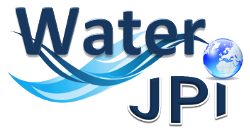12th International SedNet Conference
The SedNet 2021 conference “Sediment Challenges and Opportunities due to Climate Change and Sustainable Development” will take place in Lille, France, from 29 June – 3 July 2021.
Deadline for Abstract submission : 1st December 2020
Sediments found in upland streams, industrialised waterways, busy coastal zones and offshore waters are characterized by a wide variety of sediment properties in dynamic and less dynamic areas. These areas are inherently interlinked as sediment is transported from catchment to the open sea. The natural flow of sediment from mountainous regions to the ocean is strongly impacted by anthropogenic activities along this journey in terms of both the quantity that is transported and the quality of transporting waters. Sediment distribution is not only impacted by direct human influence but also indirectly as a result of changing weather and climate patterns. A change in sediment dynamics leading to sediment starvation or sediment accumulation is often the concern of river basin and coastal managers who constantly need to adapt to these environmental variations. Often overlooked, there may be direct and indirect effects of climate change on sediment quality, too. More frequent flash floods may erode deeper and older, more contaminated sediment layers and spread it onto flood plains. Increased UV radiation may change degradation of contaminants. Increased water temperatures will have an effect of contaminant transfer in the food chain. Little information is currently available to predict whether sediment managers will have to cope with greater or different quality problems in future due to the climatic changes.
Abstracts are welcome for a series of sessions aiming to explore these challenges and proposed solutions. This includes how policies and plans are developed for the range of often interlinked issues experienced along the journey from upland areas to the deeper waters. Questions related to how sediment quality should be assessed, sediment as an ecosystem service and how excess sediment can be used beneficially shall be addressed. The challenges posed as a result of anthropogenic influences, resource exploitation and climate change shall also be explored as well as examination of emerging contaminants from waste and waste water.
More information on the conference website.

